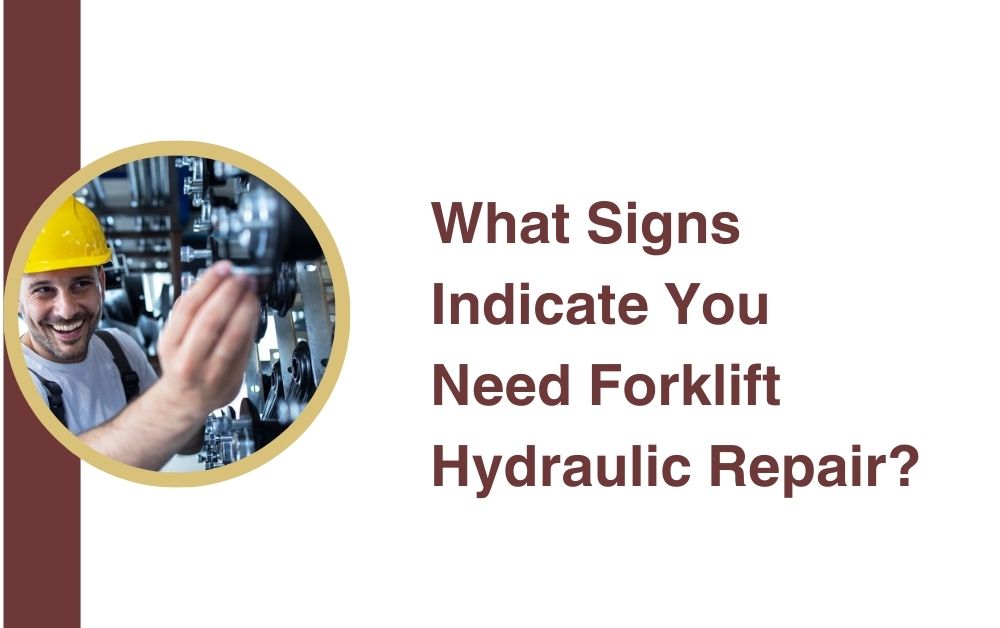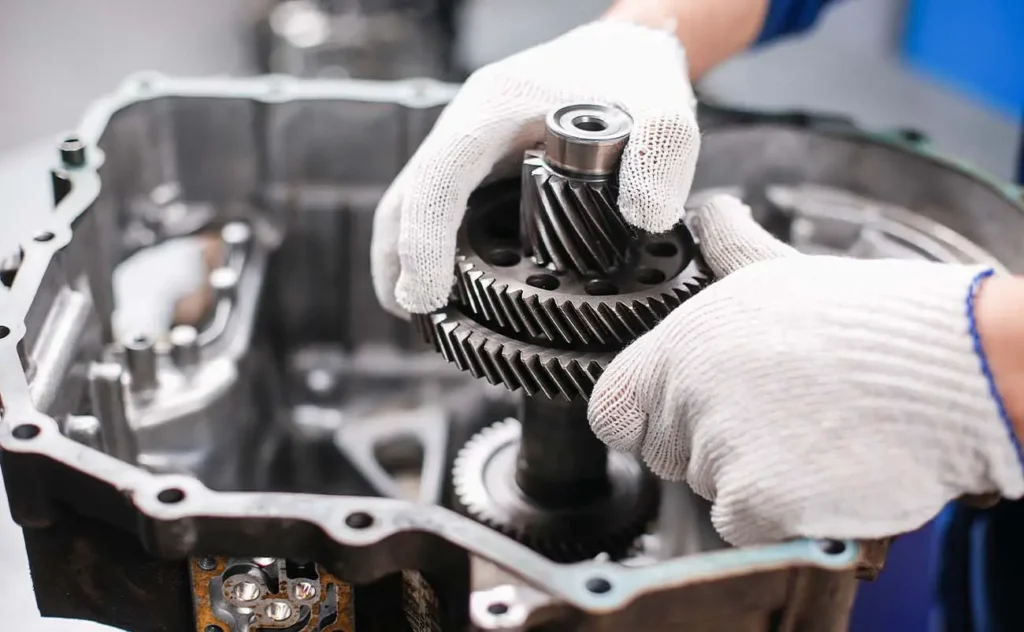
What Signs Indicate You Need Forklift Hydraulic Repair?
Forklifts are essential tools in many industries, from warehousing to construction, enabling the efficient movement of heavy materials. The hydraulic system is a critical component of a forklift, as it powers the lifting and lowering of loads. When the hydraulic system starts to fail, it can significantly impact the forklift’s performance and safety. Recognizing the early signs that indicate your forklift needs Forklift Hydraulic Repair Services can save you time, money, and potential accidents. This blog will outline the key signs that suggest your forklift’s hydraulic system requires attention.
Understanding the Forklift Hydraulic System
Basic Components
The hydraulic system of a forklift consists of several key components, including the pump, hoses, cylinders, and fluid. These parts work together to convert hydraulic fluid pressure into mechanical force, enabling the forklift to lift and move heavy loads efficiently.
Importance of Maintenance
Regular maintenance of the hydraulic system is crucial to ensure the forklift operates smoothly and safely. Ignoring maintenance can lead to more significant problems and costly repairs. Understanding the signs of hydraulic system issues is the first step in proactive maintenance.
Key Signs Indicating Hydraulic Repair is Needed
Unusual Noises
Hissing or Whining Sounds
One of the first signs of hydraulic system problems is unusual noises, such as hissing or whining. These sounds often indicate air trapped in the hydraulic fluid or a problem with the pump. If you hear these noises, it’s essential to have the system checked promptly.
Slow or Erratic Lifting
Inconsistent Performance
If your forklift is lifting loads more slowly than usual or the lifting is erratic, this could signal a hydraulic issue. Slow or inconsistent lifting can be due to problems such as low hydraulic fluid levels, leaks, or a failing pump. Addressing these issues quickly can prevent further damage.
Leaks and Puddles
Visible Fluid Leaks
One of the most apparent signs of hydraulic trouble is visible fluid leaks. If you notice puddles of hydraulic fluid under your forklift, it’s a clear indication that there’s a leak in the system. Leaks can occur in hoses, seals, or connections, and they should be repaired immediately to prevent system failure.
Loss of Power
Reduced Lifting Capacity
A forklift that struggles to lift loads it previously handled with ease may be experiencing a loss of hydraulic power. This issue could be related to a worn-out pump, clogged filters, or contaminated hydraulic fluid. Reduced lifting power not only affects productivity but also poses safety risks.
High Fluid Temperature
Overheating Fluid
Hydraulic fluid that is consistently running hotter than usual can indicate a problem. Overheating can be caused by issues such as a clogged filter, low fluid levels, or excessive friction within the system. High fluid temperatures can degrade the hydraulic fluid and damage system components, leading to more severe issues if not addressed.
Abnormal Fluid Appearance
Discolored or Foamy Fluid
Inspecting the hydraulic fluid regularly is part of good maintenance practice. If you notice that the fluid is discolored, foamy, or has a milky appearance, it may indicate contamination or the presence of air in the system. Contaminated hydraulic fluid can cause significant damage to the system components and should be replaced immediately.
Stiff or Unresponsive Controls
Difficulty in Operation
If the forklift’s controls feel stiff or unresponsive, it could be a sign of hydraulic system issues. Problems with the control valves or low hydraulic pressure can make the forklift difficult to operate, leading to inefficiency and potential safety hazards.
Preventive Measures and Maintenance Tips

Regular Inspections
Scheduled Checks
Conduct regular inspections of your forklift’s hydraulic system to catch issues early. Scheduled checks can help identify potential problems before they become severe, saving time and repair costs.
Proper Fluid Management
Regular Fluid Changes
Ensure that the hydraulic fluid is changed according to the manufacturer’s recommendations. Using the correct type of hydraulic fluid and maintaining proper fluid levels are critical to the system’s health and performance.
Professional Maintenance
Expert Service
While regular maintenance can be performed in-house, it’s essential to have your forklift serviced by professionals periodically. Expert technicians can provide thorough inspections and repairs, ensuring that your forklift’s hydraulic system remains in optimal condition.
Conclusion
Recognizing the signs that indicate your forklift needs hydraulic repair is crucial for maintaining operational efficiency and safety. Unusual noises, slow lifting, visible leaks, loss of power, high fluid temperature, abnormal fluid appearance, and unresponsive controls are all red flags that warrant immediate attention. By conducting regular inspections, managing hydraulic fluid properly, and seeking professional maintenance, you can prevent major issues and extend the lifespan of your forklift. Investing time and resources into proactive maintenance not only enhances productivity but also ensures a safer working environment for everyone involved.
Note:- To read more articles visit on liveblogaus.


